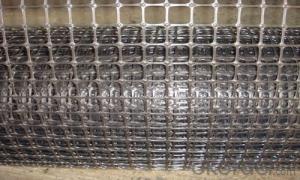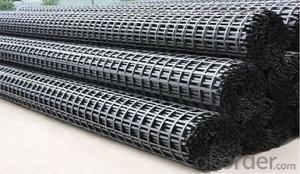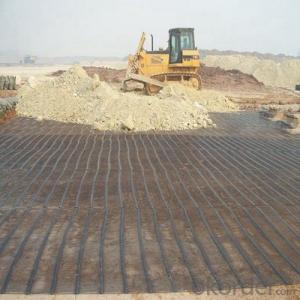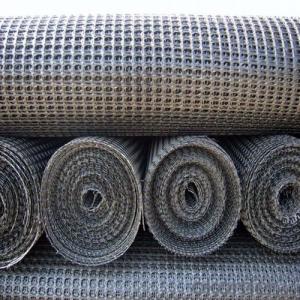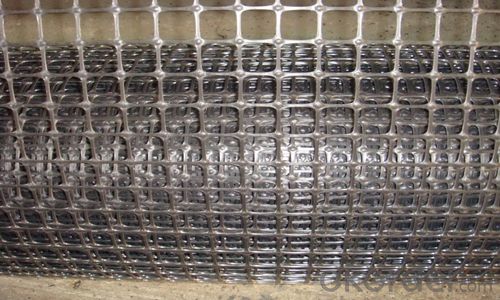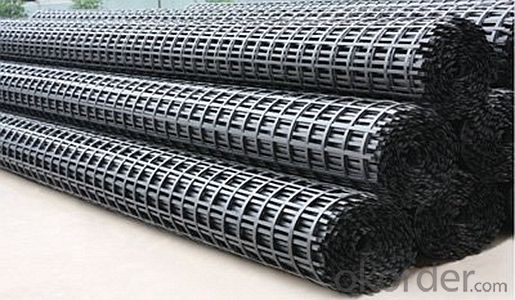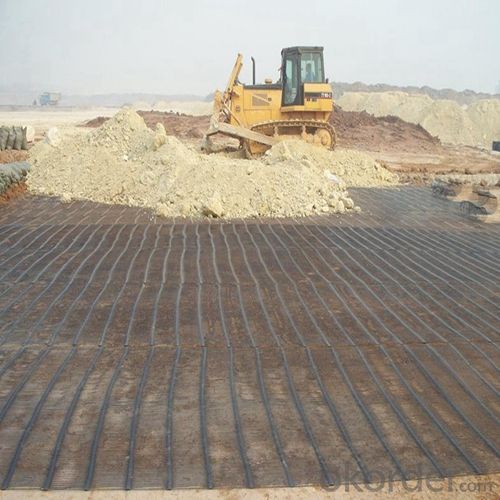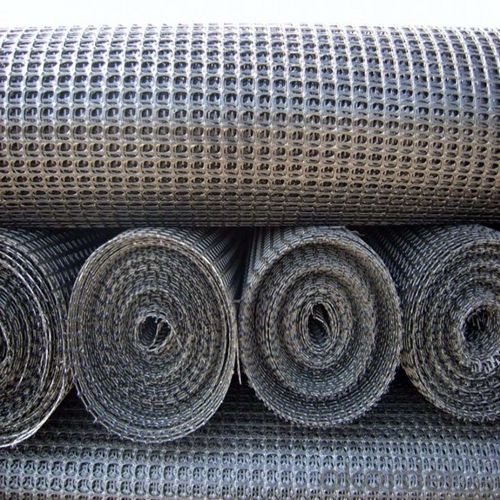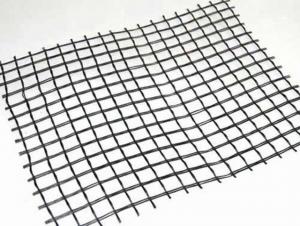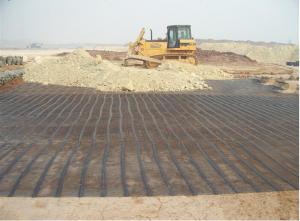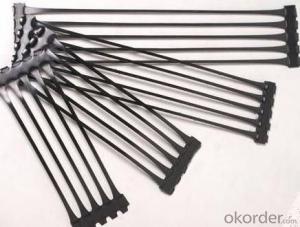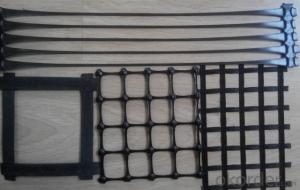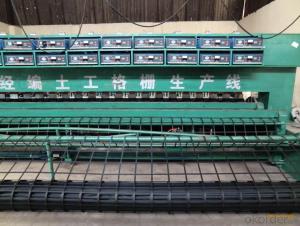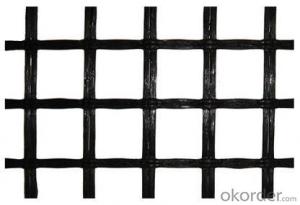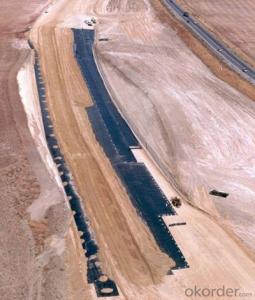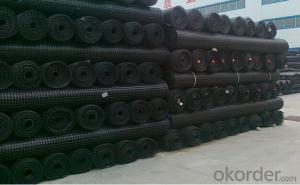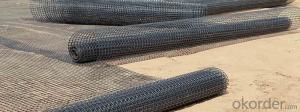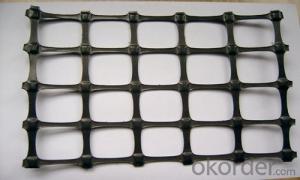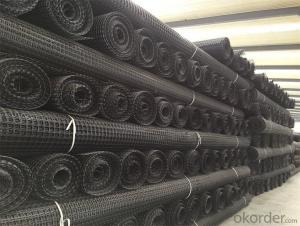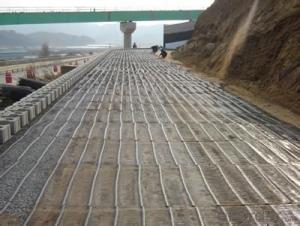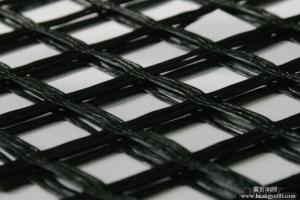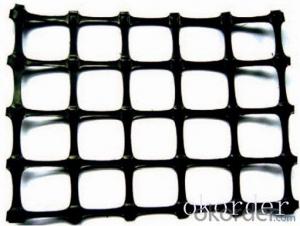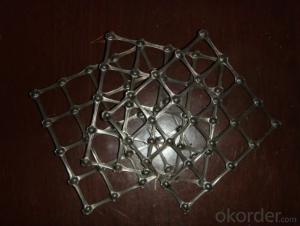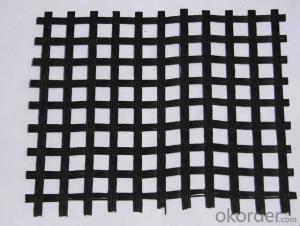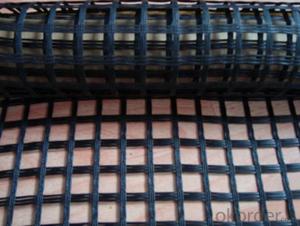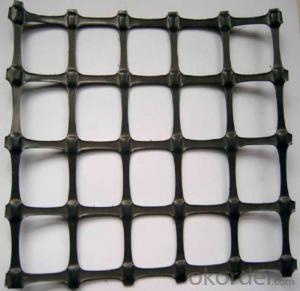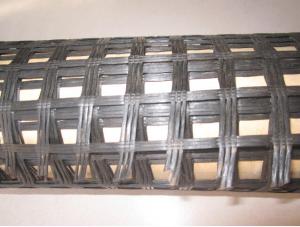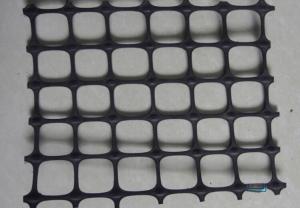Biaxial Polypropylene Geogrid with High Tensile Strength for Embedment Length of Geogrids MSE Walls in Civil Engineering Construction
- Loading Port:
- China main port
- Payment Terms:
- TT OR LC
- Min Order Qty:
- 1000 m²
- Supply Capability:
- 1000000 m²/month
OKorder Service Pledge
OKorder Financial Service
You Might Also Like
Introduction
Place of Origin:
China (Mainland)
Model Number:
Biaxial
Material:
Fiberglass
Tensile strength:
100kn
Roll Width:
3.95m
Roll length:
100 Meter
Geogrids are supplied in modules. it is possible to produce geogrid modules with area according to customer’s request.
Application Recommendations
Geogrids carry out the function of slopes protection, even of very steep ones, filling it with permeable materials, which increases slopes resistance to erosion. Specific moisture level inside the grid meshes provides vegetation (and esthetic view of earthworks).
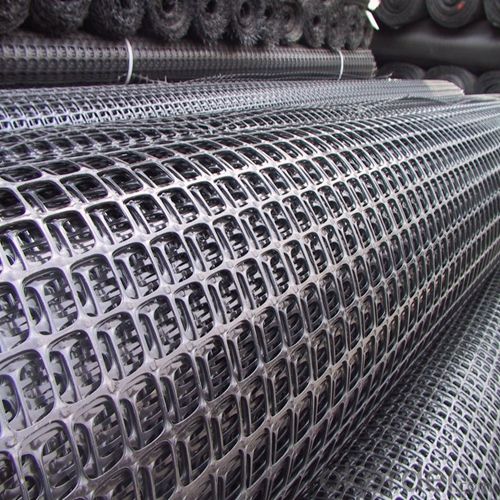
Packaging & Shipping
Packing: PLASTIC FILM INSIDE, AND WOVEN BAG OUTSIDE
Shipping: About 15 days after receipt the deposit
Our Service
Quality assurance
1.On a regular basis or as per your request,we entrust national testing agencies to conduct quality inspections
2. Strictly in accordance with the ISO9001-2008 international quality system standard,we monitor and manage the whole process throughout production,quality testing,and measurement to ensure product quality
3. For quality-related construction delay or substandard construction(except for damage or losses due to customer’s responsibility or irresistible natural disasters),we have refunding,replacement,and repair services.We will respond to customers’ feedbacks on quality issues within 24 hours.
FAQ:
Q: What kind of payments does jenor support?
A: T/T, L/C, Cash are accepted.
Q: Do you charge for the samples?
A: Accordeing to our company policy, the samples are free, we only charge the freight fee. And we will return the freight fee during the next order.
Q: Can you produce according to customers' design?
A: Sure, we are professional manufacturer, OEM and ODM are both welcome.
Q: Do you have other products?
A: Yes, please check the pictures:
- Q: What is the difference between bidirectional geogrid and unidirectional high strength geogrid
- The uniaxial geogrid is uniform holes in the polymer extrusion molding, and then heated and shaped mesh material, according to the different raw materials can be divided into one-way one-way polyethylene polypropylene geogrid, geogrid
- Q: Are geogrids suitable for reinforcement of mechanically stabilized aggregate layers?
- Yes, geogrids are suitable for reinforcement of mechanically stabilized aggregate layers. Geogrids are commonly used in civil engineering to enhance the stability and load-bearing capacity of soil or aggregate layers. They provide tensile strength and distribute applied loads, reducing the potential for deformation or failure in mechanically stabilized layers.
- Q: What is the recommended geogrid roll width for specific applications?
- The recommended geogrid roll width for specific applications can vary depending on factors such as soil conditions, load requirements, and project specifications. It is best to consult with a geotechnical engineer or geosynthetics expert to determine the appropriate geogrid roll width for your specific application.
- Q: Geogrid per square meter
- Of course, it depends on what kind of material you need the geogrid, what kind of specifications!
- Q: Soil and water conservation measures in the interim geogrid do
- Soft rock slope protection for artificial excavation
- Q: Can geogrids be used for reinforcement in embankments and dams?
- Yes, geogrids can be used for reinforcement in embankments and dams. Geogrids are a type of geosynthetic material that provide strength and stability to soil structures. They are commonly used in civil engineering projects to reinforce and stabilize embankments and dams, as they improve the overall structural integrity and prevent soil erosion.
- Q: Fiberglass grille width
- Width indicators are in 1-6
- Q: Are geogrids suitable for use in soil reinforcement for coastal protection structures?
- Yes, geogrids are suitable for use in soil reinforcement for coastal protection structures. Geogrids are commonly used in such applications as they provide effective reinforcement by distributing the loads and stabilizing the soil. They help to prevent erosion and improve the stability and durability of coastal structures, making them a reliable solution for coastal protection.
- Q: Can geogrids be used in reinforcement of retaining walls?
- Yes, geogrids can be used in the reinforcement of retaining walls. Geogrids are commonly used in retaining wall construction to enhance the stability and strength of the structure. They are typically placed within the soil layers of the wall to distribute the lateral forces and increase the overall resistance to soil movement. This reinforcement technique helps to prevent the wall from overturning or sliding, ensuring its long-term stability.
- Q: Do geogrids help in reducing soil erosion?
- Yes, geogrids can help in reducing soil erosion. Geogrids are synthetic materials that are installed in soil to reinforce it and provide stability. They act as a barrier that prevents soil particles from being washed away by water or blown away by wind, thereby reducing erosion.
Send your message to us
Biaxial Polypropylene Geogrid with High Tensile Strength for Embedment Length of Geogrids MSE Walls in Civil Engineering Construction
- Loading Port:
- China main port
- Payment Terms:
- TT OR LC
- Min Order Qty:
- 1000 m²
- Supply Capability:
- 1000000 m²/month
OKorder Service Pledge
OKorder Financial Service
Similar products
Hot products
Hot Searches
Related keywords
